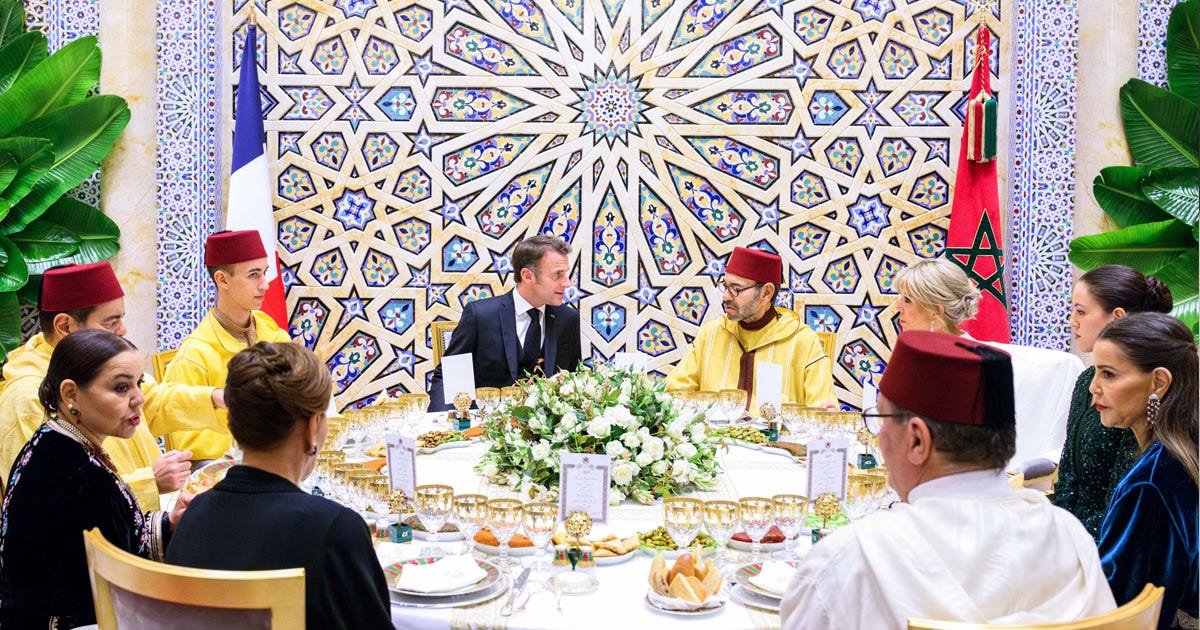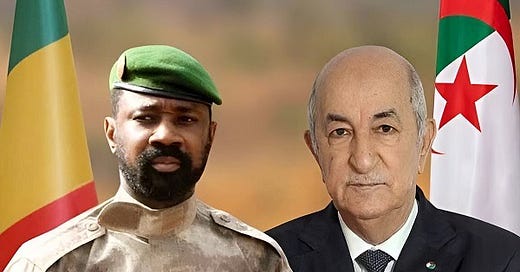Algeria and Mali on a Silent Collision Course in the Sahel
A drone shot down, a phone call never made — and a region on the edge of explosion.
On April 2, 2025, Algeria’s Ministry of Defense announced it had shot down a “hostile” drone near Tinzawaten, deep in the country’s southern border with Mali. The official statement said air defenses had detected “a real threat” within Algerian airspace and neutralized it successfully. No information was provided on the drone’s origin — leaving analysts to speculate about its target, sender, and message.
Just 24 hours later, the Malian army launched airstrikes in the same border zone, claiming to target “terrorist cells” in pre-emptive operations. But no mention was made of Algerian coordination — or even communication — raising eyebrows about whether the strikes were timed in response to the drone incident or reflected a deeper rift.
Two events in two days. One volatile frontier. And two governments who, on paper, are allies in counterterrorism — but on the ground, appear increasingly divided and distrustful.
Tinzawaten Isn’t Just a Dot on the Map
Tinzawaten sits in one of the Sahel’s most militarized and fragmented regions. Since France withdrew its forces from northern Mali, the area has become a strategic vacuum — contested by Russian-aligned Wagner units, armed Tuareg groups, and national armies scrambling for legitimacy.
Algeria once held the diplomatic reins in the region. It was the principal broker of the 2015 Algiers Peace Agreement with northern Mali’s armed groups. But since the 2021 military coup in Bamako and Mali’s tilt toward Moscow, Algiers has gradually withdrawn its trust — and presence.
Then came the shock: on October 19, 2023, Mali’s Foreign Ministry issued a public statement directly accusing Algeria of:
“Providing support to armed terrorist groups, interfering in Mali’s internal affairs, and undermining stability in the north.”
The statement marked a historic rupture in bilateral ties. From that point, communication channels between Algiers and Bamako effectively collapsed — and border tensions, particularly near Tinzawaten, began to simmer.
Algeria’s Fractured Sahel Strategy
Despite Algeria’s legacy in counterterrorism since the 1990s, its influence across the Sahel today looks alarmingly diminished. Here’s a snapshot of Algeria’s strained ties across the region:
Mali: Former ally turned rival. Mediation efforts abandoned. Accusations of terror links denied by Algiers. Relations remain cold and suspended.
Burkina Faso: No formal security cooperation. Ouagadougou now aligned with Mali and Niger under the AES bloc — and Algeria is clearly out of the loop.
Mauritania: Relations remain diplomatic but shallow. Coordination on border threats is limited and largely technical.
Niger: After the July 2023 coup, Algeria attempted to mediate between France and the junta. But it was quickly sidelined. No strategic influence remains.
Algeria and France: From Tension to Estrangement
Algeria’s relationship with France has been chronically strained since the visa dispute of 2021, when Algiers refused to accept the forced repatriation of its nationals. Tensions have since spilled into matters of security, migration, and history.
The relationship reached a critical turning point in October 2024, when French President Emmanuel Macron, during a state visit to Morocco (October 28–30), officially recognized Morocco’s sovereignty over Western Sahara. The move, praised in French media as “historic and long overdue,” struck at the heart of Algeria’s regional policy — and was met in Algiers with sharp discontent, though no immediate public response.
Months of silence followed. Then, on March 31, 2025, Macron and Algerian President Abdelmadjid Tebboune spoke by phone for the first time since the diplomatic fallout. While the Élysée framed the call as a gesture of Eid al-Fitr goodwill, it was in fact the first real attempt to mend the rift — a carefully timed effort to reopen high-level dialogue after Paris’s strategic realignment.
France’s recognition of Moroccan sovereignty has not only isolated Algeria diplomatically, but also forced both countries to confront a deeper question:
Is there still space for a pragmatic relationship — or has the breach become permanent?

Are We Entering a New Cold War in the Sahel?
The drone shot down in Tinzawaten.
The airstrikes launched by Bamako.
They are not isolated incidents. They are early signs of a regional contest over power, legitimacy, and survival.
Algeria feels its strategic space narrowing. Mali, emboldened by Russian backing, is asserting itself militarily. Meanwhile, Moscow watches and quietly capitalizes on the vacuum.
The drone wasn't just an aircraft — it was a symbol of creeping escalation. And Mali’s airstrikes were not just targeting insurgents — but sending a message that Algeria is no longer a partner of priority.
In the Sahel, a conflict brews in silence.
It doesn’t yet burn. But beneath the sand, the heat is rising.





